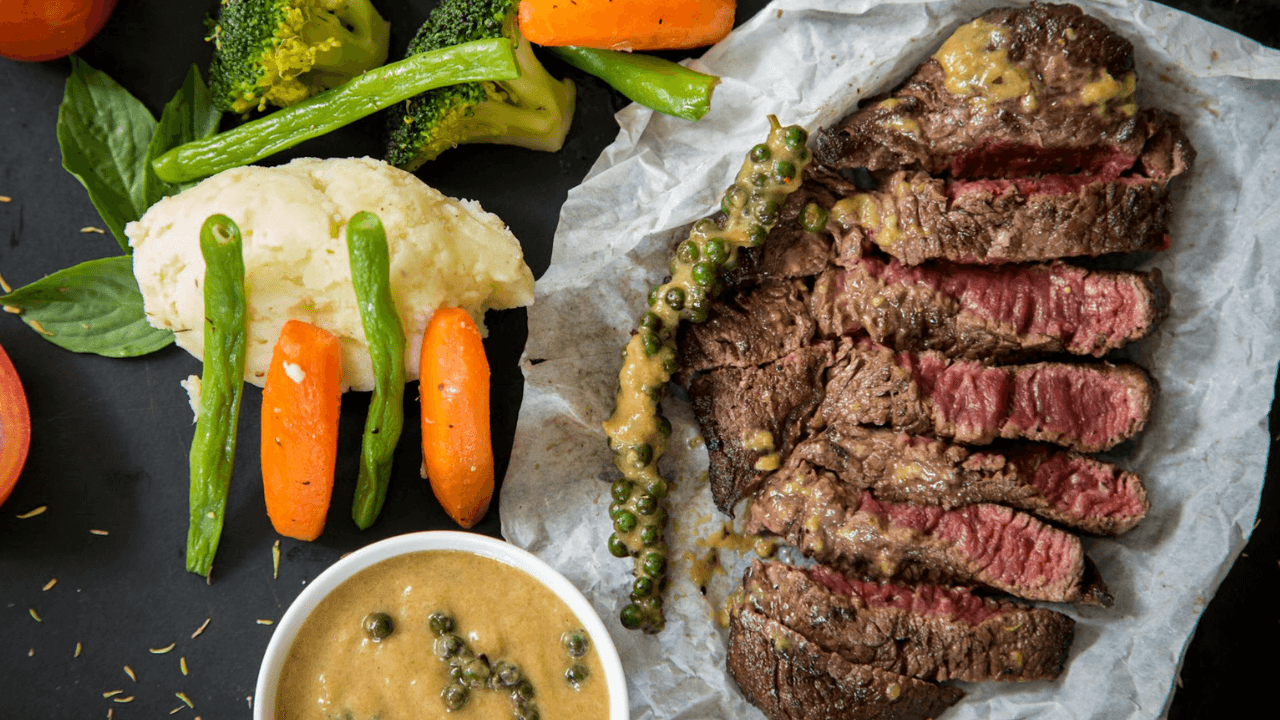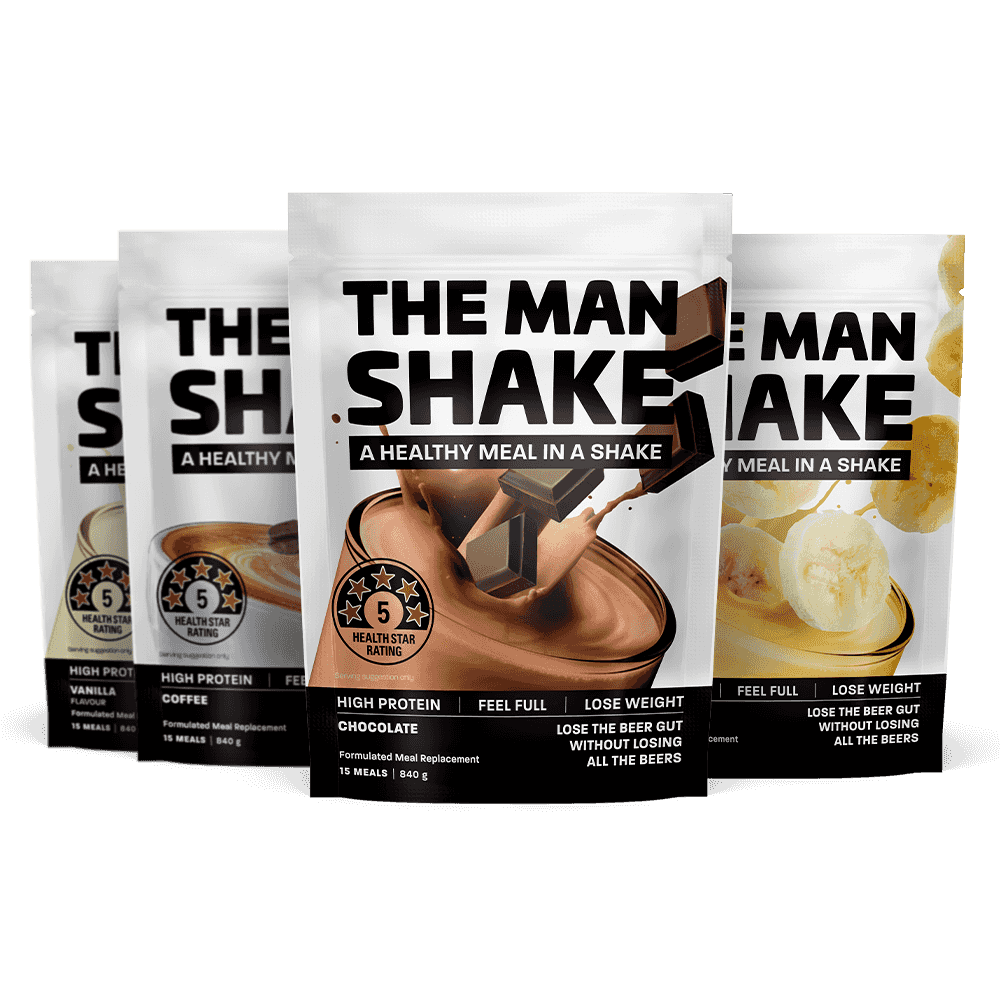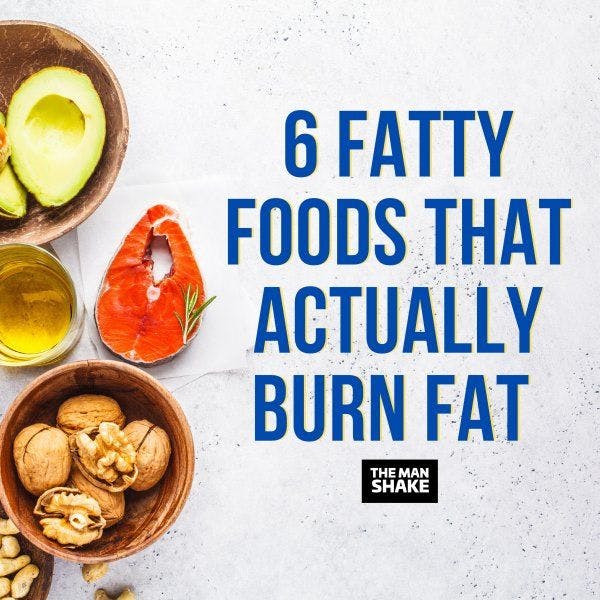Easy Ways To Get More Protein Into Your Diet
•Food - general

Share
Ever find yourself struggling to get enough protein into your diet? Protein is important for people on a weight loss journey as it takes longer to digest than other nutrients.
This means it will keep you fuller for longer and reduce your likelihood of snacking. It has also been shown to boost your metabolism and increase the number of calories you burn.
Some people find it hard to get the required amount of protein for their diet, so we thought we’d share some tips to help you increase your consumption of this macronutrient.
Replace Cereal At Breakfast
When it comes to consuming protein at breakfast, The Man Shake is the best choice! A close second is eggs. Common breakfast foods like cereal and toast tend to be low in protein, with 240g of cereal porviding just 5g of protein. On the other hand, three large eggs will provide you with 19g of protein while also reducing your appetite later in the day. The Man Shake provides 30g of protein!
Greek Yogurt
Rich, creamy and full of protein, Greek yoghurt is an ideal snack for people looking to shed pounds and gain muscle mass. A 100g serving of Greek yoghurt will provide you with 10g of protein along with conjugated linoleic acid, which has been proven to promote fat loss. Greek yoghurt goes well with berries and fruit, and can be used as a substitute for sour cream.
Eat Leaner Cuts Of Meat
Eating leaner cuts of meat and slightly increasing the portion sizes can increase the amount of protein in your meal while also cutting the calories. According to Healthline, an 85g serving of T-bone steak will provide you with 21g of protein and 250 calories, while an 85g serving of the leaner sirloin steak provides 26g of protein and just 150 calories.
If you want some help picking the best type of meat for weight loss, check out this blog here.
Healthy Peanut Butter
Aside from being incredibly tasty, peanut butter is a high-protein food that has been linked to increased fat-burning, reduced blood sugar levels and decreased appetite. According to the US Department of Agriculture, spreading two tablespoons of peanut butter on sliced fruit can increase its total protein content by 7g.
That said, when choosing your peanut butter, ensure it’s a natural variety with no added sugars. For more information about picking a healthy peanut butter, check out this blog here.
Include A High-Protein Food With Every Meal
Researchers have found that people should aim to eat around 30 to 40g of protein at each meal. This should help promote fullness and preserve muscle mass and is a better option than eating smaller portions of protein throughout the day. Foods that are high in protein include fish, meat, eggs, legumes and tofu.
Cottage Cheese
High in protein (23g per 210g serving) and low in calories (176 calories per 210g), cottage cheese is a versatile food that can be enjoyed on its own or mixed with nuts and cinnamon. Likewise, it can be added to fruit salads and smoothies.
Canned Fish
Canned fish is packed full of protein and is super convenient for people on the go. It doesn’t need to be refrigerated and with 19g of protein and just 90 calories per 100g serving, it’s the perfect food for blokes on a weight loss journey. Some fish (think salmon and sardines) also contain omega-3 fatty acids, which help with concentration and are believed to improve heart health. Canned fish can also be easily added to a salad or pasta dish to improve the protein content.
Include Legumes
Legumes are an excellent source of protein and fibre and are appropriate for vegetarian and vegan diets. Examples of legumes include white beans and kidney beans, peas, chickpeas and lentils. According to the US Department of Agriculture, 198g of cooked lentils contain 17.9g of protein. Try adding them to soups, or turn them into a snack with this Crunchy Chilli Chickpease recipe.
Eat Wholegrains
Aside from being chock-full of important nutrients like fibre and antioxidants, wholegrains are also good for increasing your protein intake. Examples of wholegrains containing protein include couscous, wild rice and quinoa. To easily integrate these foods into your diet, try using them rather than refined grains like white rice. For comparison, 185g of quinoa contains 8g of protein, while a similar serving of cooked white rice contains only 4g.






